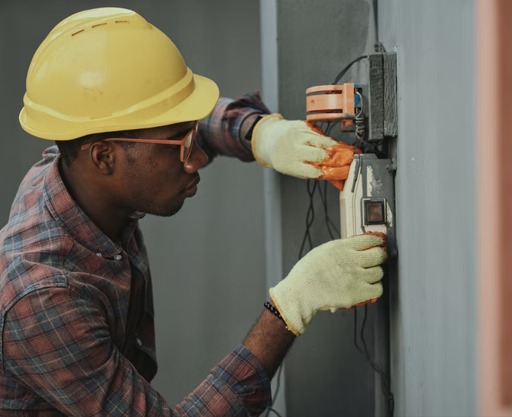7 Ways to Prepare and Ace Your Job Interviews the Right Way

‘’Find out seven ways to prepare, be interview-ready, and get the job you have always wanted.”
Receiving an invitation for an interview can make you excited, and you want to show what you can do. But soon, you might start feeling nervous and unsure about how you’ll do.
Preparing for an interview comes with so much tension and can be stressful, but having the right mindset and using important strategies can help you succeed.
Whether you’re aiming for your dream job or want to improve your interview skills, following specific steps can make sure you’re ready and confident on the big day.
Getting ready for a job interview means more than just looking up common interview questions online.
Often, it involves working with a staffing agency to learn about the company culture and tailor your answers to what the employer wants.
Let’s explore seven ways to help you get ready and do well in your job interviews.
1). Dig deep and research on the company
Before your interview, it’s crucial to deeply understand the company and the job you’re applying for. Take time to learn about the company’s mission, values, culture, and recent updates. Understanding this will help you tailor your answers to show genuine interest.
Explore various sources like networking, news releases, and online platforms beyond the company’s official information. Understanding the bigger picture, including challenges or criticisms, prepares you to explain why you’re interested in the company and what you can offer.
Ultimately, this preparation shows that you align with the company’s values and are ready to contribute to their team effectively.
2). Learn everything you can about the job description
Carefully examine the job description as a vital step in preparing for your interview. The listed qualifications and qualities are a roadmap to demonstrate how well you match what the employer is looking for.
Understand the outlined responsibilities and adjust your responses, emphasizing experiences and skills that matter.Go back to the job description to find essential skills and challenges the role is meant to handle. This way, you can strategically emphasize your suitability during the interview.
Before the meeting, review the job description again, taking note of specific skills and qualifications that support your candidacy. Use the same adjectives from the listing in your answers to reflect the qualities the employer is seeking.
3). Make a match on what makes you the best candidate for the job
Once you have the job qualifications listed, connect them with your strengths. Make a list of skills, certifications, experiences, and qualities that match what the job needs.
In the interview, highlight these strengths to show you’re a good fit. Get ready with examples from your past work that demonstrate these qualities so you’re prepared for questions about specific skills or abilities.
Consider your key strengths for this job by looking at your skills, achievements, and interview responses matching the role. Consider what parts of your background will impress the interviewers based on your research into the job requirements.
4). Find out what kind of interview you’re in for—and prepare accordingly
Companies employ various interview formats, so inquire about what to expect. Formats may include one-on-one meetings with multiple staff members, group interviews, or presentations.
You might also encounter phone or video interviews. It’s fair to ask the recruiter or HR contact about the format in advance.
Practice responding to common interview questions to boost confidence. Online resources and mock interviews can be valuable tools for this. You can conduct a mock interview, preferably mimicking the actual format, with a trusted friend or family member aiding in preparation.
Verify your technical setup if the interview is virtual and rehearse responding to potential questions. Additionally, for presentations, review tips on delivering a successful job interview presentation to ensure thorough preparedness.
5). Dress well to look professional
Dressing appropriately for the interview is essential, considering the company’s culture and dress norms. It’s advisable to lean towards more professional attire rather than casual wear. Ensure your clothing is clean wrinkle-free, and your grooming, including hair and makeup, is well-maintained.
While many companies expect smart attire, some industries and workplaces encourage casual dress, making attire selection challenging. Factors like company size, industry, and culture influence dress expectations.
When unsure about the dress code, inquire beforehand to avoid any missteps. Remember, it’s better to overdress than underdress. For remote interviews, dress as if it were in person to maintain a professional image.
Your attire can significantly impact your interviewer’s perception, so opt for a well-fitting, comfortable outfit that aligns with industry standards and the company’s culture. Avoid overly flashy or casual clothing and pay attention to grooming and accessories to complete your professional appearance.
6). Come prepared and be ready to sell yourself
During your interview preparation, consider ways to present yourself positively:
- Punctuality is crucial; arriving late increases stress and leaves a negative impression. Aim to arrive early.
- Maintain positivity and enthusiasm; interact politely with staff and remind yourself of the interview’s importance. Respond positively, show enthusiasm for the role, and avoid criticizing previous employers.
- Be mindful of body language, offer a firm handshake, sit naturally without slouching, and maintain eye contact and a smile throughout the interview.
- Communicate clearly and concisely; answer questions with relevant skills and experiences, pause for clarity, and avoid speaking too quickly.
7). Follow up after your interview
After your interview, make sure to reach out to the employer. This shows you’re still interested in the job and reminds them of the important things you discussed. Writing a follow-up note involves a few steps:
- Start by saying thank you and mentioning the job you’re applying for.
- Then, mention something specific you talked about and explain how it relates to your experience and interests.
- Finally, ask if they have any more questions and say you look forward to hearing from them.
You can also ask them when you would get feedback and thank them again for the interview. Be prepared for three possible outcomes: getting the job, not getting it, or needing to do more interviews.
Either way, send a thank-you note to show you’re still interested and polite. It’s an excellent way to remind them how enthusiastic and professional you are.
Conclusion
In conclusion, preparing for an interview requires careful research and planning, but it’s worth it. Follow these tips to show off your skills and interest in the company and increase your chances of getting the job you want
Being well-prepared and showing you’re serious will impress employers. Good luck with your interviews!






